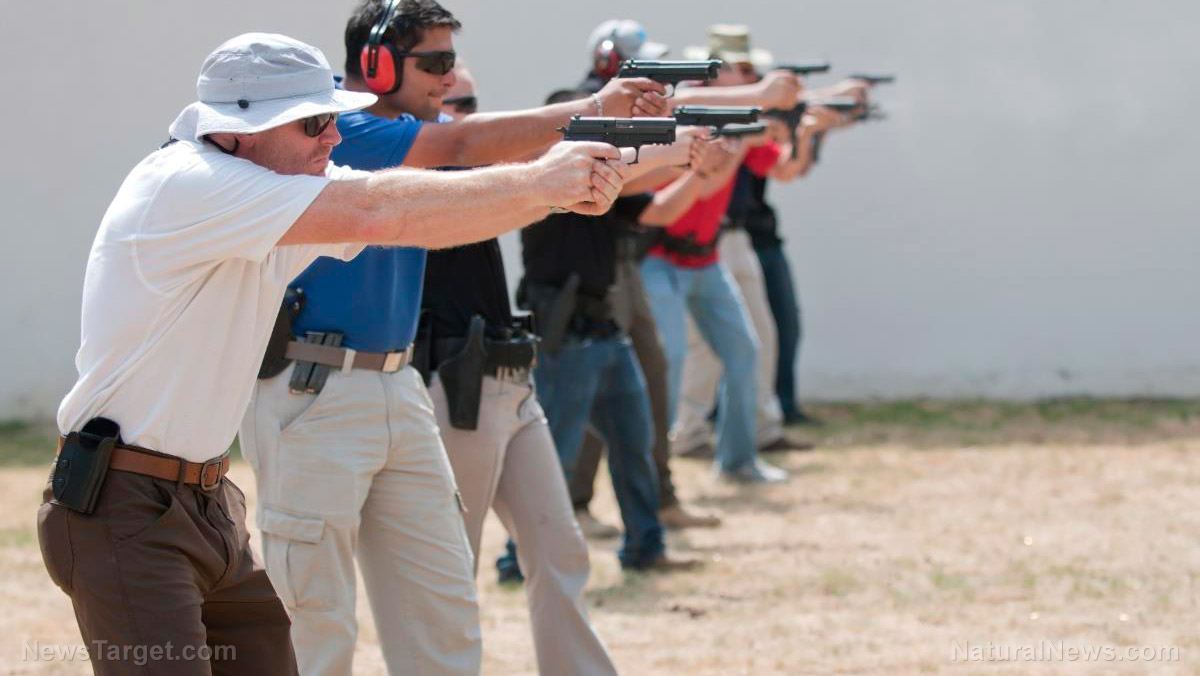
Knowing how to defend oneself is an essential skill that any prepper worth their salt should learn. However, that does not mean you should go gung-ho on any potential threat. You should generally still follow safety procedures and commit yourself to proper training.
One of the most common ways preppers defend themselves is through the use of guns and firearms. Following firearm safety protocols should be a universal practice for any responsible gun owner, even if SHTF. Not only could you endanger innocent people around you, but you can also get yourself in a lot of danger. Many people have probably heard of the 21-foot rule. Some people would dismiss it as a myth, but a proper understanding of this rule could significantly increase your chances of survival. (h/t to PersonalDefenseWorld.com)
Timing is everything
What is interesting about the "21-foot rule" is that the term never really came from the source of the concept behind it. It was a buzzword thrown around by various law enforcement circles. This caused many people to misunderstand it, thinking that deadly force is justified only when a threat goes within 21 feet from you. Inversely, some would believe that attackers farther than 21 feet away should not be engaged. In reality, the use of deadly force only comes down to a proper assessment of threats, objective reasoning, and situational awareness.
In March 1983, Salt Lake City police officer Dennis Tueller published an article in an issue of SWAT magazine. This article discussed the importance of "the reactionary gap" using the premise of a man with a handgun versus a man armed with a knife. This so-called reactionary gap is the distance needed to effectively react to any given situation. According to Tueller, an average adult male can cover seven yards or 21 feet in about 1.5 seconds. This is what he calls the "danger zone." In this case, you only have 1.5 seconds to react to the threat, unholster your gun, and fire two centered shots on the target before he manages to stab you with his weapon. This is where the "Tueller Drill" comes into play.
This drill can be done in a variety of ways. One of the simplest ways to perform the Tueller drill is to draw your gun to engage a non-moving target placed seven yards away, and fire two bullets, all in less than 1.5 seconds. Take any more time than that and you'd be considered "dead."
Another more dynamic approach to this drill is by having someone stand back to back with the shooter. After a buzzer or whistle, the "runner" takes off in the opposite direction while the shooter fires two rounds. For every shot fired, the runner drops a flag. Afterward, they can measure the distance of each flag to get a rough understanding of the shooter's own danger zone and shooting skills.
Shooters can find themselves learning a lot from performing these drills. More often than not, you won't be fighting a stationary target and neither would you be in a position to be stationary in the face of an oncoming attacker.
In Tueller's article, he emphasized the importance of developing "tactical alertness." Being able to spot danger signs before they even become an actual danger can help you avoid the problem altogether. To Tueller, a tactical withdrawal may be the best thing to do in most situations.
Another thing he emphasized was the importance of using cover. These drills are designed to help shooters realize that leaving nothing in the space between you and the potential threat significantly reduces the time you need to unholster and fire your gun. Using obstructions like trash cans, dumpsters, vehicles, and furniture can help you buy enough time to make the right decisions and, if necessary, place the right shots.
Overall, the Tueller drill can be a huge boon in helping you survive and that anyone with a gun should try it at least once. Be smart and apply proper tactical principles to overcome any threat.
Sources include:
Please contact us for more information.














